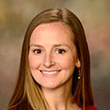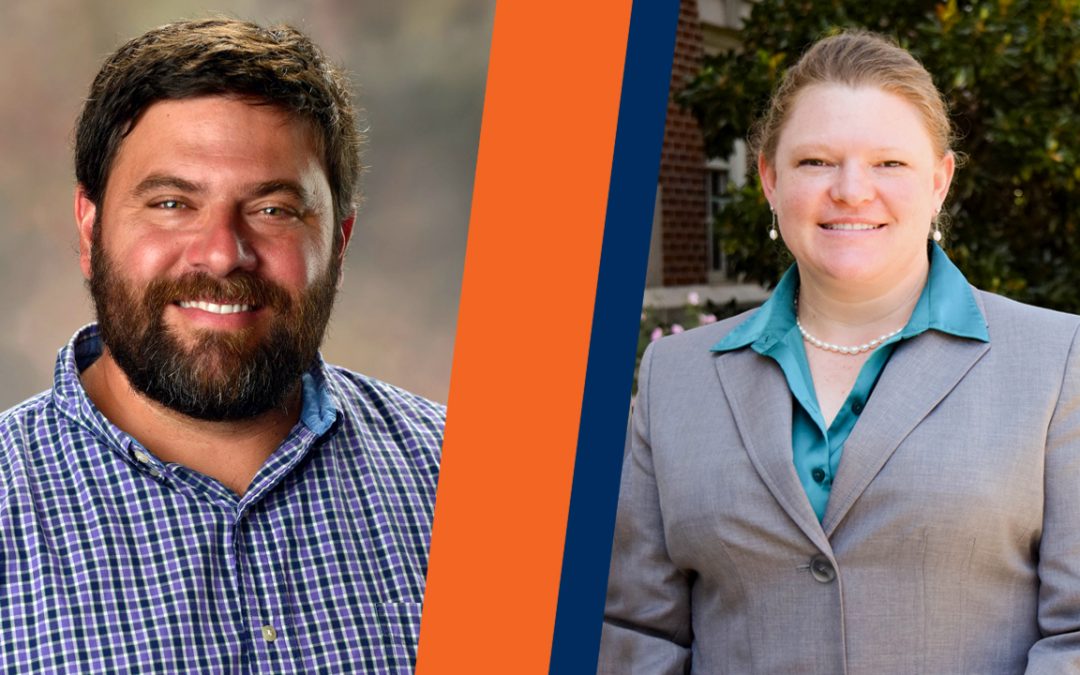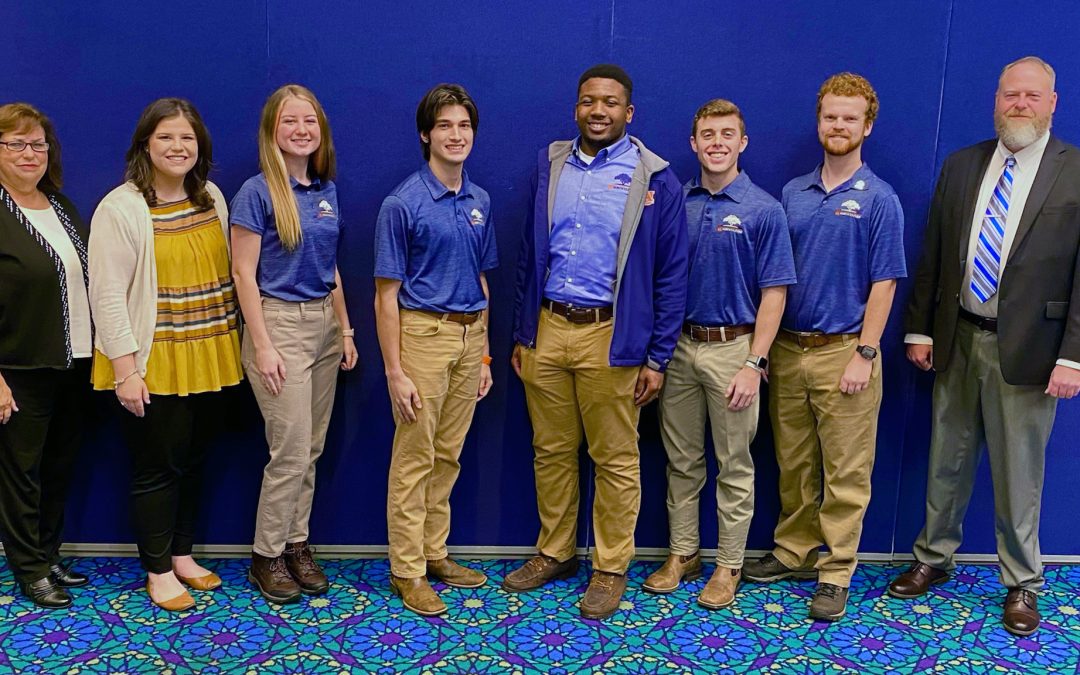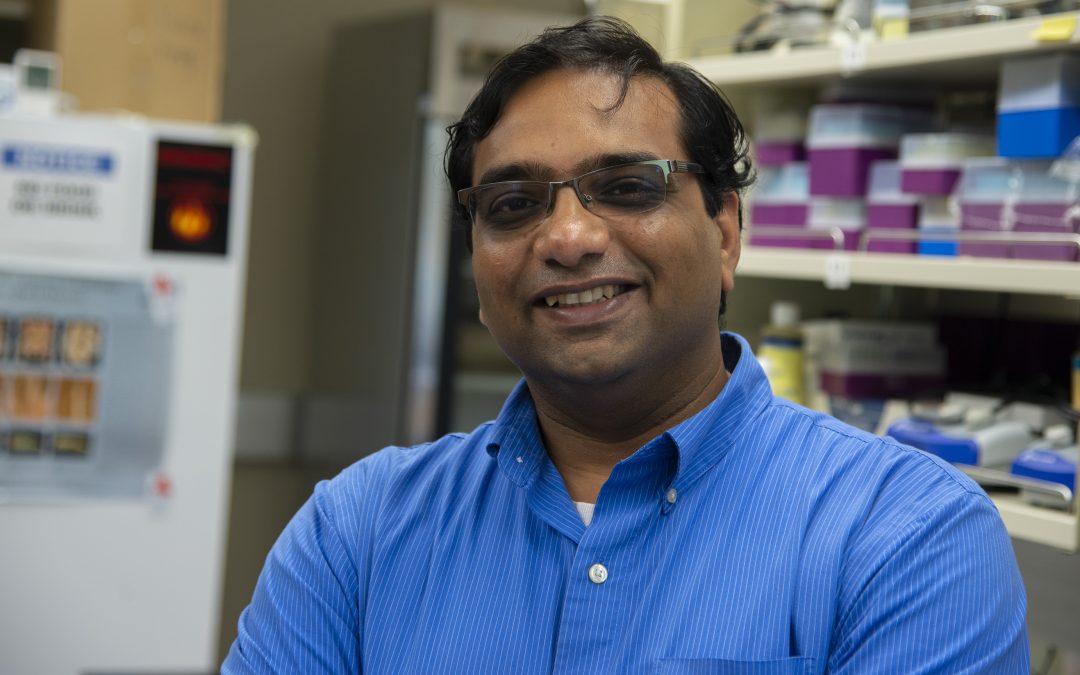by MARY CATHERINE GASTON
video by NATHAN KELLY

Mitchell Pate is director of the College of Agriculture’s Poultry Research Farm, where he oversees the day-to-day operations of research within Auburn’s poultry science department.
You don’t have to be an Old Testament scholar to know the story of Queen Esther, the average Hebrew girl whose above-average looks landed her a royal title and, more significantly, an audience with the malleable King Xerxes. She used this influence wisely, saving her people from a cruel fate and leaving her mark on history. As the writer of the biblical book bearing her name put it, she was made queen “for such a time as this.”
In the two and a half millennia since, the timing and talents of others have coincided in such a way as to remove all doubt that they were chosen for a specific challenge. Mitchell Pate is one of these people. While his task is admittedly less historic than Queen Esther’s, it is a weighty one, and there is no denying that he was cut out for it.
As director of the College of Agriculture’s Poultry Research Farm, Pate oversees the day-to-day operations of research within Auburn’s poultry science department, working with faculty and industry to ensure all trials are run correctly and, thus, yield accurate results. Pate, the college’s 2016 Alumni Service Award recipient, calls it a “dream job,” and one he was well prepared for when he began it 10 years ago.
That preparation began on his family’s farm near Lowndesboro, Alabama, where he grew up helping out in the family’s two commercial poultry houses. The Pates raised pullets, or egg-laying hens, and with years of experience under his belt, the transition to paid work in the poultry industry was natural for Pate when he graduated from high school.
“Growing up, I was always told, ‘You’ve got to go to college’,” Pate says. But with a good job at Sylvest Farms in Montgomery, he put off returning to the classroom for several years. Finally prevailed upon by his wife Beth and his boss, the late Maynard Sylvest, Pate decided to “take the plunge” and head to the Plains.
“Having worked in a poultry processing plant, I realized what great opportunities there were in the poultry industry,” he says.
He completed his degree in poultry science in 1985 and went back to work in the industry he loves, spending time in live production with Gold Kist before returning to Sylvest to lead the company’s milling operations. Along the way, Pate was gaining invaluable knowledge, but that’s not all.
“Mitchell has a great network of friends and a strong reputation in the industry,” says Don Conner, head of the Department of Poultry Science. When the department began searching for someone to lead the feed mill and research farm, these two factors helped make Pate the ideal candidate for the job, Conner said.
And given what was on the horizon for the department at that time, it was vital that they hire just the right person. With plans in place to construct a state-of-the-art feed milling plant in the short term and, later, to replace the university’s antiquated farm entirely, the department needed someone with both the industry and academic know-how to help design new facilities that would be relevant to the industry’s current and future needs.
That’s just what Pate has spent the past decade doing. From managing research and production at the $7.1 million, 12,500 square foot mill to conducting tours of the facility to fundraising for future needs, there’s nary a dull moment in his work days—days he says are longer and more full than they ever were in his industry work. But he wouldn’t have it any other way.
It’s a good thing this Black Belt farm boy enjoys hard work, because, like most folks in agriculture, he won’t be getting a breather any time soon. The first phase of construction of the new Charles C. Miller Jr. Poultry Research and Education Center at the university’s north Auburn research complex is scheduled to begin this month. Consisting of two cutting-edge poultry research houses and one equipment research house for the National Poultry Technology Center, phase one will be nearing completion just as ground is broken on the second of three phases.
During the second phase, forecast to begin in early 2017, two additional research houses and a classroom and administration building will be added to the center. Finally, the third phase will consist of three additional poultry houses and a processing plant. Depending on the availability of funds, Pate says he’s optimistic the department will achieve total build-out within the next five years.
At that point, Pate and others say, Auburn will be home to one of the world’s premier poultry research and education programs. Because Alabama’s poultry industry generates 65.6 percent of the state’s annual agricultural revenue and employs more than 86,000 people, the research and education he oversees stands to have an enormous economic impact right here at home.
As significant as this is, Alabamians aren’t the only ones who will benefit from the vision Pate is helping bring to life. As scientists and producers around the globe search for ways to feed a world population that is projected to reach 9 billion by the year 2050—with most of that growth occurring in underdeveloped regions where protein-rich foods are scarce—animal nutrition research like that happening in Auburn will be critical to increase efficiency as well as output.
And that makes Pate proud.
“We will soon be able to collect more data, more accurately, in a more biosecure environment,” he says. “That means more money for the farmer and more food for people.”
It’s a noble endeavor indeed, and one for which Pate was most certainly made.
VIDEO: Curious about Pate’s work? Find out more about the feed mill in this video.




